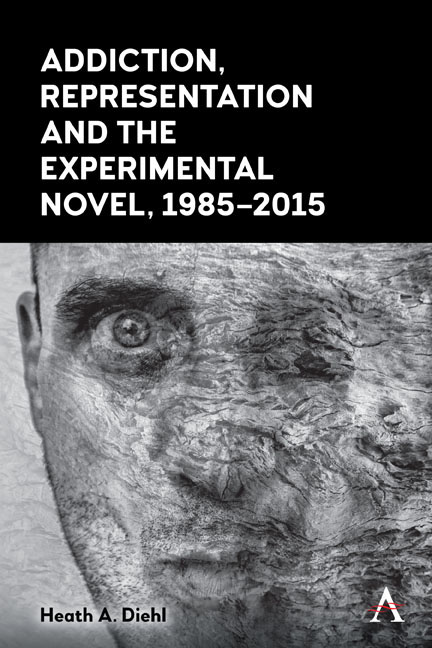1 - Bearing Witness: Leaving Las Vegas (1990)
Published online by Cambridge University Press: 25 January 2021
Summary
John O’Brien's Leaving Las Vegas (1990) follows as its primary focal character a sort of Everyperson alcoholic named Ben who lives by a single “golden rule that even he no longer has the power to veto: there is nothing that will stop [him] from drinking.” “Physically crippled with alcoholism and psychologically afraid of being too far from its source,” Ben opts early in the novel to move from Los Angeles to Las Vegas, “land of anytime alcohol,” where he can engage in a strict, round-the-clock daily drinking regimen that will enable him to “maintain [the] illusion of physical health” and “keep the sickness at bay.” The narrative action that ensues from this inciting incident takes readers on a near-continuous tour of dive bars, red-light districts and by-the-hour motel rooms that is punctuated, often seemingly at random, by episodic bouts of fitful sleep, vomiting, erectile dysfunction and blackouts. These narrative events propel Ben along an inexorable path to desolation, physical decay and, in the end, death.
On its surface, the plot of Leaving Las Vegas might initially appear to be little more than another, garden-variety tale about the addict's tragic devolution into chronic alcoholism— a narrative trope so common to the addiction novel that the two have long been understood, especially within the context of US arts and letters, to be interchangeable. And, indeed, this is precisely the tradition into which both critics of the novel and O’Brien's own publishing house repeatedly have placed Leaving Las Vegas. Writing in 1995, when the novel first went back into print, Entertainment Weekly's Chris Nashawaty describes Leaving Las Vegas as “an oddly romantic, bender-to-oblivion book that was more autobiographical than anyone had imagined.” The adjective “bender-to-oblivion,” used here to describe the narrative trajectory of O’Brien's novel, is telling in that it advances an all-too-familiar interpretation of the addict's lived experience that begins in shame— after all, this type of drinking spree typically is accompanied by the complete absence of self-care— and ends in erasure, invisibility and absence. But Nashawaty does not stop there; instead, he goes on to suggest that this novel, written just two years before the author— an alcoholic himself— died by suicide, was “a 189-page suicide note.”
- Type
- Chapter
- Information
- Publisher: Anthem PressPrint publication year: 2020



